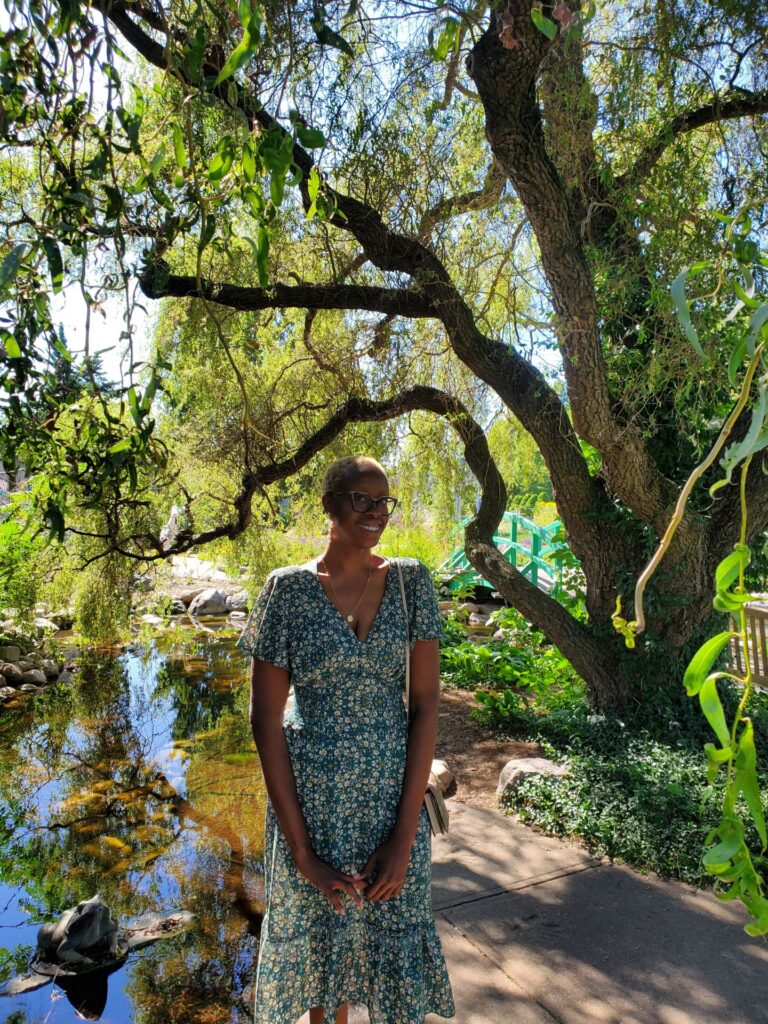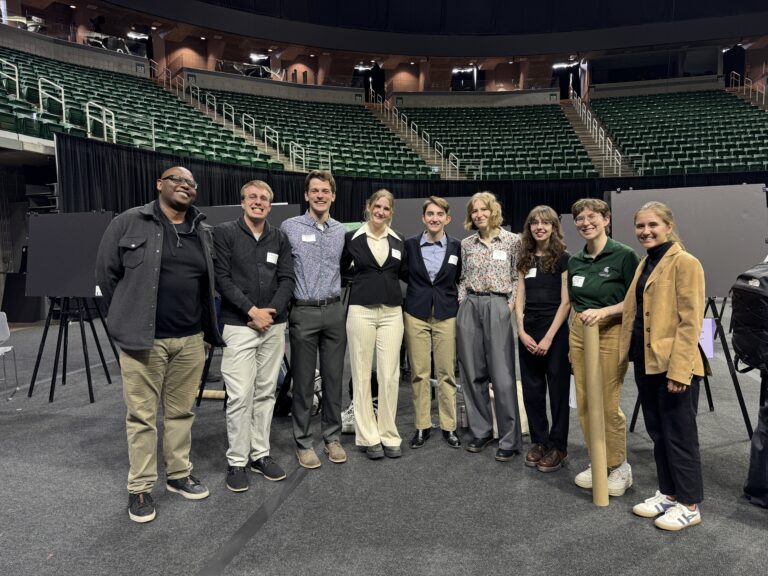By Cheyenne Symonette

As a Graduate Research Assistant at the Digital Humanities and Literary Cognition Lab (DHLC) at Michigan State University, I had the privilege of working across a range of innovative and dynamic projects, each contributing to my growth as a scholar. From coordinating interdisciplinary research to serving as Associate Editor of the Voices and Perspectives section of Scholarly Editing, and supporting undergraduate-led initiatives, this year has been a journey of learning, collaboration, and inspiration. The DHLC’s mission to bridge the humanities with the sciences and foster inclusive, accessible, public-facing research has shaped my understanding of the digital humanities in profound ways. Above all, I have been continuously impressed by the work of the undergraduate researchers, whose dedication, creativity, and intellectual curiosity left me in awe.
Coordinating Projects and Supporting Undergraduate-Led Research
One of the most rewarding aspects of my role was supporting undergraduate researchers as they took the lead in projects such as Creativity in the Time of COVID-19. This project, a $3 million Mellon-funded initiative, brought together artwork from across the globe, showcasing how art can serve as a tool for healing during crises. Throughout the project, I had the opportunity to observe and assist talented students, including Sydney Logsdon and Lorraine Inman, as well as Lab Co-Director Dr. Natalie Phillips, whose leadership and intellectual rigor were both impressive and inspiring. Their ability to navigate complex tasks, from curating digital archives to developing exhibition materials, was a testament to the power of undergraduate-led work.
While I contributed to coordinating the logistics of the project and ensuring its smooth execution, it was the undergraduate researchers who truly drove its success. Their passion and initiative were evident in every step of the process, and their work made me realize the immense potential that lies in empowering students to take on significant roles in academic research. Supporting them, rather than guiding them, was one of the highlights of my year at DHLC.
In addition to my role in Creativity in the Time of COVID-19, I helped develop the DHLC Graduate Student Fellowship, which was designed to encourage graduate students to conduct independent digital humanities research with the support of the lab’s resources. This initiative was especially fulfilling, as it allowed me to be part of a project that would further integrate graduate student-led research into the lab’s workflow. The first recipient, April Best, was awarded a $500 fellowship to create a digital mapping project focused on Harlem Renaissance poets—a project that will contribute to the broader understanding of this important cultural movement.
Editorial Contributions and Interviewing Scholars
My work as Associate Editor for Voices and Perspectives in Scholarly Editing offered me a unique opportunity to engage with scholars whose work is at the forefront of preservation and cultural heritage. Alongside Dr. Julian Chambliss, I helped brainstorm and develop interview questions for discussions with Professors Gordon Henry and Ellen Cushman on Indigenous language preservation. I also had the privilege of conducting my own interview with Dr. Andrea Roberts, whose research focuses on preserving Black heritage spaces.
The experience of observing Dr. Chambliss conduct interviews with such care and insight was invaluable. His thoughtful approach to interviewing and his ability to engage scholars in meaningful conversations were skills I deeply admired and sought to emulate. These interviews, which will appear in the upcoming Voices and Perspectives section of Scholarly Editing, are a key part of the DHLC’s commitment to amplifying voices that have historically been marginalized in academic spaces.
Attending Meetings and Learning from Undergraduate Researchers
At DHLC, one of the most enriching aspects of my role was attending regular meetings with undergraduate researchers. These meetings provided a platform for students to share their progress, discuss challenges, and engage in collaborative problem-solving. The undergraduates—particularly Sydney Logsdon and Lorraine Inman—demonstrated remarkable intellectual maturity and initiative. They consistently impressed me with their ability to manage complex research tasks while maintaining a high standard of scholarly rigor. Their work ethic and approach to digital humanities research were both inspiring and humbling.
As I watched them lead discussions, develop research questions, and curate projects, I realized how much I had to learn from them. Their passion for research and their ability to take ownership of projects were qualities that enriched my own understanding of what it means to be a researcher in the digital humanities.
Gaining Insights into Grant Writing and Large Projects
One of the most formative experiences of this year was working alongside Dr. Natalie Phillips on the Art as Medicine project, which provided me with firsthand exposure to the complexities of grant writing and managing large-scale projects. Observing Dr. Phillips navigate the intricacies of executing grant work and applying for grants were invaluable learning experiences. From conceptualizing the project to managing the budget and overseeing its execution, I gained a deep understanding of the logistics involved in running a large-scale academic initiative.
This experience was educational in terms of practical skills, such as budgeting and project management, as well as understanding the importance of collaboration, patience, and meticulous planning. These are lessons I will carry with me as I continue my academic career, whether in the digital humanities or beyond.
Conclusion: A Year of Growth and Collaboration
Looking back on this year at the DHLC, I realize how much I have learned from my mentors and from the undergraduate researchers I had the privilege of working alongside. Their creativity, initiative, and intellectual curiosity have been a constant source of inspiration. Through my role in coordinating projects, working at Scholarly Editing in a crucial moment of the journal’s reimagining, and supporting student-led initiatives, I have gained invaluable skills in project management, conducting interviews, audio editing, transcription, and grant writing. Most importantly, I have learned how empowering students and fostering collaboration can transform the research process and contribute to the field of digital humanities.
The DHLC has provided me with an environment where I could grow both as a scholar and as a mentor, and for that, I am deeply grateful. As I continue my journey in digital humanities, I carry with me the lessons learned, the collaborations forged, and the unwavering belief in the power of interdisciplinary research to transform the way we engage with literature, culture, and the world around us.
